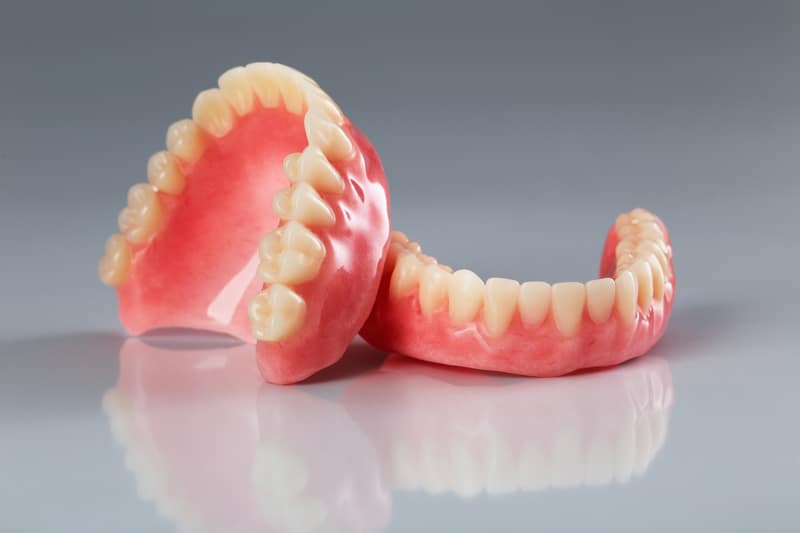If your dentures hurt, you have probably tried to talk to your dentist about it. Maybe with little or no luck. You might have gotten an attempt at a refit, or maybe just told that you need to wait and adjust. Or maybe you’ve become resigned to the denture pain over the years because you think that’s just the way it is with dentures–they have to hurt.
We’re here to dispel that myth: dentures don’t have to hurt. Denture pain often occurs because they are bad dentures, don’t support a healthy bite, cause unhealthy conditions in your mouth, or don’t interact properly with your bones.
It is possible to have dentures that are comfortable to wear, so comfortable that you’re happier having them in than having them out. If you are looking for comfortable dentures in the Sydney area, please call (02) 9686 7375 today for an appointment with a denture dentist at My Hills Dentist in Baulkham Hills.

How Bad Dentures Can Cause Denture Pain
Your dentures are supposed to fit comfortably but snugly on top of your gums, balancing all the force of chewing across your gums. However, poorly fitted dentures are either too tight, pinching your gums, or too loose. When they’re too loose, they might slide around in your mouth, banging up against the sides of your gums, irritating them. When your gums swell, any touch of the dentures can be painful.
Sometimes dentures don’t balance the forces in your mouth so you end up with some places that get bitten down on harder than others. These pressure points not only hurt, they can lead to a more rapid loss of bone under the gums. If your denture is imbalanced over a high point in your mouth, it might even cause the dentures to break.
Some materials might cause you denture pain. Most often, this is because you’re allergic to the material and need dentures made of a different one. Other times, the material isn’t properly cured and can give off irritating compounds into your gums.
Dentures May Not Support Your Bite
Another potential cause of denture pain may not be felt in your gums at all, it can be felt in your jaw, your ears, and even as headaches! That occurs when dentures aren’t properly designed to support a healthy bite. This can contribute to TMJ, temporomandibular joint disorder–also known as TMD.
Some discomfort in your jaw joints and muscles might be expected as you have to change your biting and chewing when you have dentures, but if this persists after the healing and adjustment period, you should talk to a dentist about getting neuromuscular dentures that are fitted to your bite.
Dentures May Promote Unhealthy Conditions
Some dentures can contribute to irritants and infections in your mouth. If your dentures are constantly getting food and drink under them, you can experience near-constant irritation as a result. You may be able to resolve the problem with a denture reline, you may need new dentures, or it might be best if you moved to implant dentures.
Some dentures or denture linings can promote infections. If the denture material or liner is very porous, it can be more easily colonized by bacteria, that can then infect your gums. Adequate cleaning of dentures should resolve the problem, but if it doesn’t, you might need to replace your dentures.
Dentures and Bones Don’t Get Along
As noted above, imbalanced dentures can cause your body to remove bone rapidly in some places. In extreme cases, this can lead to the exposure of nerves in your jaw that can be painful when pressed by your denture.
Other times the problem is your bones, which can have small spurs left over from the tooth extraction process, or may resorb in ways that leave sharp points or ridges that painfully pinch your gums. Bone spurs can be removed, and the ridges can be reshaped. Dentures that properly balance forces might also alleviate the problem. Dental implants can also be used to remove pressure from your bones.
You don’t have to live with denture pain. To learn what’s causing your denture pain and how we can resolve it, please call (02) 9686 7375 today for an appointment with a Sydney area denture dentist at My Hills Dentist in Baulkham Hills.
Any surgical or invasive procedure carries risks. Before proceeding, you should seek a second opinion from an appropriately qualified health practitioner.

